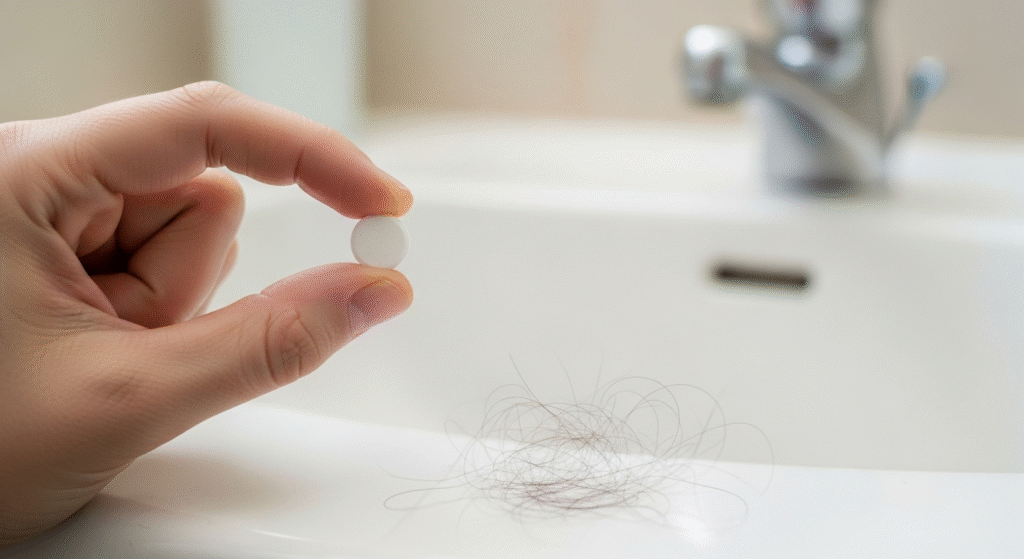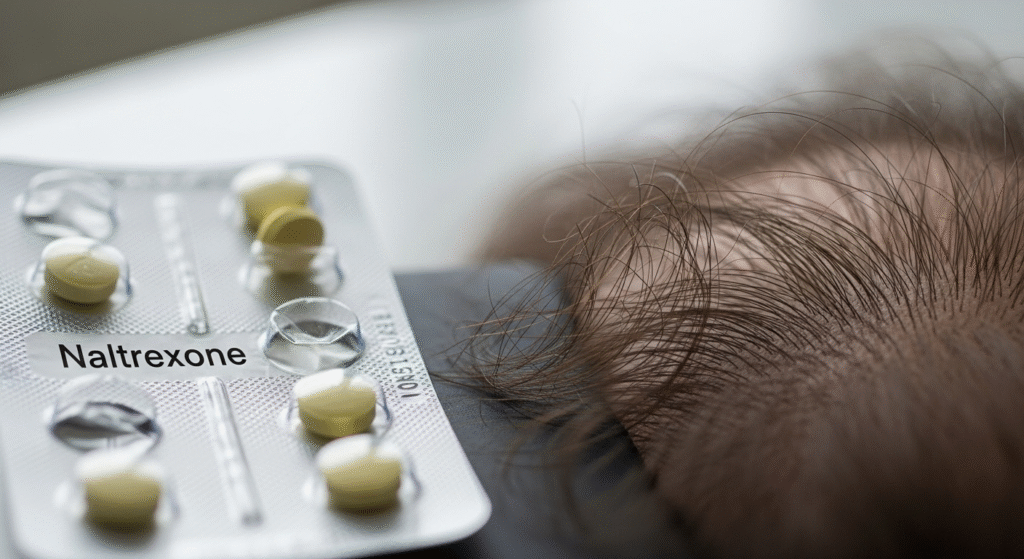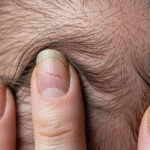If you're concerned about hair thinning or loss while taking naltrexone, you're not alone. This medication, commonly prescribed for opioid and alcohol use disorders, has been associated with both hair loss and potential hair regrowth under certain conditions. This article delves into the relationship between Naltrexone and Hair Loss or hair health, exploring its effects, …
If you’re concerned about hair thinning or loss while taking naltrexone, you’re not alone. This medication, commonly prescribed for opioid and alcohol use disorders, has been associated with both hair loss and potential hair regrowth under certain conditions.
This article delves into the relationship between Naltrexone and Hair Loss or hair health, exploring its effects, potential benefits, and considerations for those experiencing hair changes.

What Is Naltrexone?
An Overview of Naltrexone’s Uses and Mechanism
Naltrexone is a prescription medication that works by blocking opioid receptors in the brain, preventing the euphoric effects of drugs like alcohol and opioids.
Initially approved for opioid addiction treatment, naltrexone has been used off-label for other medical conditions, including certain autoimmune diseases and even weight loss.
In recent years, low-dose naltrexone (LDN) has gained popularity as a treatment for various health conditions, including hair loss.
- Approved Uses: It’s primarily prescribed for opioid and alcohol use disorders.
- Off-Label Applications: Naltrexone has been investigated for conditions like Crohn’s disease, fibromyalgia, and even as a potential treatment for hair loss.
- Mechanism of Action: As an opioid receptor antagonist, naltrexone affects the central nervous system by blocking the effects of opioids and modifying certain immune system functions.
Naltrexone and Hair Loss

Exploring the Connection Between Naltrexone and Hair Thinning
While naltrexone is primarily known for its use in treating addiction, one of the reported side effects is hair thinning or loss. This has left many users wondering if their medication is contributing to their hair problems.
- Reported Side Effect: Hair loss is a rare side effect but has been reported by some individuals taking naltrexone.
- Potential Causes:
- Alterations in Hormone Levels: Naltrexone may interfere with hormone levels, including those that influence hair growth, leading to thinning or loss.
- Nutritional Deficiencies: Changes in appetite or gastrointestinal function caused by naltrexone might lead to deficiencies in essential nutrients, which could affect hair health.
- Stress Responses: Chronic stress, often a byproduct of addiction recovery, can exacerbate hair loss.
- Individual Variability: Not every person on naltrexone experiences hair loss. The impact of naltrexone on hair can vary significantly from one individual to another.
Potential for Hair Regrowth
Can Naltrexone Promote Hair Growth?
While hair loss is a potential concern, there’s also evidence suggesting that naltrexone may help with hair regrowth under certain circumstances. This is especially true for low-dose naltrexone (LDN), which has shown promise in treating certain autoimmune-related hair loss conditions.
- Low-Dose Naltrexone (LDN): LDN has been investigated for its effects on the immune system and has shown potential benefits for conditions like alopecia areata, a type of autoimmune hair loss.
- Conditions Studied:
- Alopecia Areata: Some studies have shown that LDN can stimulate hair regrowth in people with alopecia areata.
- Lichen Planopilaris: Research has indicated that LDN may help with hair regrowth in this rare condition, though more studies are needed.
- Clinical Evidence: While the evidence is still emerging, some studies have indicated that LDN may help in promoting hair growth in individuals suffering from autoimmune-related hair loss.
Managing Hair Health While on Naltrexone

Tips for Maintaining Healthy Hair
If you’re concerned about hair loss while on naltrexone, there are steps you can take to promote overall hair health. Whether the cause of your hair loss is related to naltrexone or other factors, the following tips can help you maintain healthy hair.
- Balanced Diet: Ensure you’re getting enough vitamins and minerals that support hair health, including biotin, zinc, and iron. If your appetite or digestion is affected by naltrexone, talk to your doctor about supplementing your diet.
- Regular Monitoring: Keep track of any changes in your hair condition. If you notice thinning or hair loss, document it and discuss it with your healthcare provider.
- Consult Healthcare Providers: If hair thinning is a concern, consult your doctor or a dermatologist to rule out other potential causes and discuss treatment options.
- Consider Alternatives: If hair loss becomes significant, your doctor may suggest alternative treatments or medications that do not have the same side effects.
FAQ
Does naltrexone cause hair loss?
Hair loss is a rare side effect of naltrexone. If you notice thinning or hair loss, it’s important to discuss it with your healthcare provider.
Can low-dose naltrexone help with hair regrowth?
Some studies suggest that low-dose naltrexone (LDN) may help with hair regrowth, especially in cases of autoimmune-related hair loss like alopecia areata. However, more research is needed.
What should I do if I notice hair thinning?
If you notice hair thinning while on naltrexone, consult your doctor. They can help determine if naltrexone is the cause and discuss possible treatments or alternatives.
Conclusion
Naltrexone is a powerful medication that can help with opioid and alcohol addiction, but like many medications, it comes with potential side effects, including hair loss. While the connection between naltrexone and hair thinning is not fully understood, there is evidence that low-dose naltrexone may help promote hair regrowth in some individuals.
By maintaining a balanced diet, monitoring your hair health, and consulting with a healthcare provider, you can minimize any negative impact on your hair while undergoing treatment.
Consult with a Specialist
If you’re experiencing hair changes while on naltrexone, consider scheduling a consultation with Dr. Uzma Irfan, an ISHRS-certified surgeon in Islamabad today to provider specializing in hair disorders.
They can provide personalized advice and treatment options tailored to your needs. Don’t let hair loss hold you back—speak to an expert today to find the best solution for your hair health.






